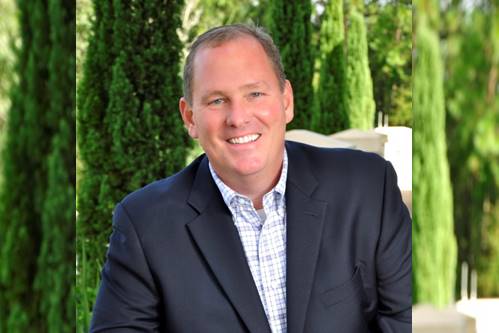

Auto insurance premiums in the US are now the highest on record, according to an annual report from car insurance search engine The Zebra, which found that insurance rates increased for 83% of American drivers over the last year. With many factors to blame, from a driver’s zip code to the cost of repairing technology-laden vehicles, the insurance market is “tightening its belt,” particularly in commercial auto.
One expert in this space calls the state of the auto insurance market “fragile, to say the least.”
“Carriers are trying to reduce their losses at this point, and a lot of different things are going on that’s driving that, whether it’s distracted driving, which is at an all-time high [or] fuel costs being down, so more people are driving on the roads than before,” said Larry McLean (pictured), vice president at Insurance Office of America (IOA), adding, “Vehicles are more expensive to fix and continually get more expensive to fix. We’ve got adaptive cruise control, cameras, parking assists – all those things [were implemented] in high-end cars a couple of years ago and now, a lot of the cars have them. A car that cost $3,000 to fix might be $6,000 to fix today.”
A litigious environment, with aggressive attorneys stalking their next prey, hasn’t helped losses in commercial auto either. Similarly to personal auto, insurers are trying to figure out how to monitor people’s driving behaviors, and pick up the best accounts with the safest drivers to help with profitability. Tech-based tools have been especially effective in mitigating risks, such as devices that block cell phone use when a vehicle is moving.
“They can actually talk on a Bluetooth headset, but other than that, they can’t text, they can’t read an email, they can’t go on Facebook, so everything freezes on the phone,” explained McLean, adding that these devices can also track a vehicle’s speed and other driving habits. “We also use driver-facing and forward-facing cameras, so if we have bigger trucks or a fleet of vehicles, we see a lot of times that a dump truck operator will get dragged into a lawsuit when they didn’t do anything wrong, but [another driver] tried to squeeze by them on an exit, for example, and hit the side of the truck.”
Cameras can help verify what actually happened and prevent added losses from lawsuits.
When companies are hiring drivers for commercial fleets, screening for bad hires through integrity testing is another useful method to lower risk by weeding out candidates that are quick to anger, or have a propensity to use drugs or steal.
“You might have somebody that seems OK, but they’re basically a bomb ready to go off, so it can help with multiple things – not just driving, but better employees, a better fit for your team from a social aspect to create the culture you need, and then all the way down to [protecting against a] hostile workplace,” said McLean.
For smaller commercial auto businesses, it’s important for brokers and agents to explain to them why their auto insurance costs are rising, and paint a clear picture of the cause and effect between the various factors contributing to higher premiums, including accidents.
“They think of it as corporate money and they realize it’s coming out of their pocket as well, so we try to make an emotional connection with them that it’s not corporate America – for these small businesses, that’s your profit, that’s your bonus, that’s your growth,” said McLean.
On the personal auto side, changes are also coming as HR 1756, a new bill recently introduced in Congress, will make it illegal for auto insurance companies to use consumers’ credit scores in determining insurance rates.
“They do that because they say those are the people most likely to have an accident, and that’s as far from the truth as it can be,” said Donald Hardy, founder of the Georgia-based insurance agency Quantum Benefits, adding that he’d also like to see a requirement that auto insurers must notify the insured when their liability and premium change.
“The insurance industry should, number one, be required to notify a person who’s driving an older vehicle that their coverage has been reduced to comply with state laws, and, number two, your premium should be reduced to correspond with the liability involved. As it is now, you can be driving a 20-year-old car and still pay brand new rates on it, and, if you wreck it, they’re not going to repair it,” said Hardy.
The takeaway is that insurers need to keep lines of communication open with insureds, along with taking advantage of tools that can help decrease exposures.
“We’ll do bi-monthly meetings where we discuss loss trends with the clients that have had challenges, [or] we’ll go in and shut down the company for three hours every other month and [conduct] driver training,” said McLean. “It’s not a matter of flipping a switch, but it’s trying different levers that might help altogether.”
